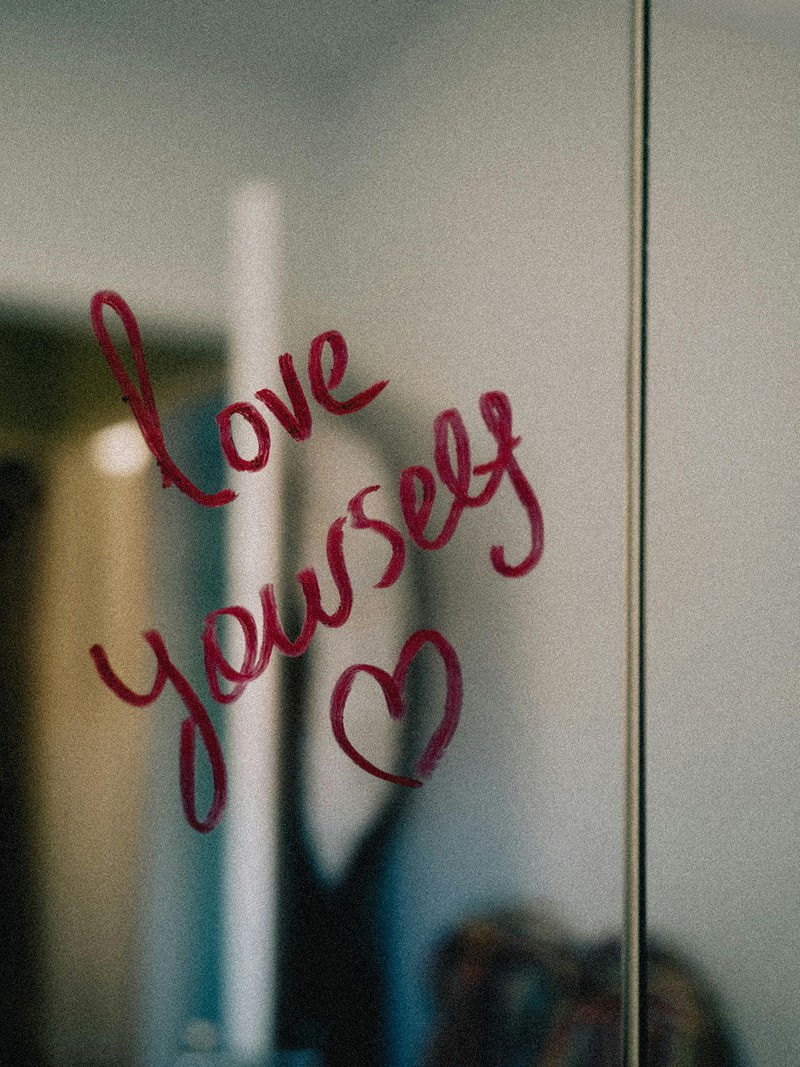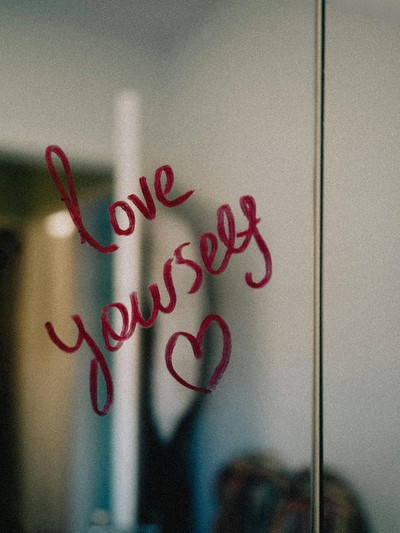

Expert Tips For Dealing With Rejection
First, a word from Fiona Yassin, family psychotherapist & founder of The Wave Clinic:
“Dealing with rejection is one of the most challenging aspects of navigating our teen years, early 20s and adult life – and some people go to great lengths to avoid it. This can lead to a tendency to please others at the expense of our own needs, but that’s rarely the solution. People-pleasing can leave us feeling resentful, unhappy and as if we’re being pulled in different directions. In these situations, setting healthy boundaries is essential. Staying true to ourselves can be difficult, especially when we fear rejection, but it’s key to maintaining our wellbeing.”
CAREER
Scenario: I didn’t get the job I wanted after hours of preparation and multiple rounds of interviews.
“Sometimes we really want a job – perhaps we’ve followed a company on LinkedIn for a long time and feel it’s a perfect fit for us and our long-term goals. When there are multiple rounds of interviews, the company is searching for a specific type of person with the same values and the correct skill set that meets its needs and aligns with its culture. It’s easy to take it personally, but it’s essential to take into account the perspective of those making the decision. It isn’t a rejection of you as an individual.
“If a company decides you aren’t the right fit, it’s important to accept that it knows what it’s looking for. For example, if the team is more introverted, management may prefer someone with similar traits to maintain cohesion, rather than an extroverted individual. It’s helpful to recognise that there are environments where we’ll thrive and others where it may be harder to perform at our best.” – Fiona
“Consider looking at the situation objectively; it may suggest you've been spared a choice that could have led to more painful consequences later. It’s helpful to reflect long and hard on why the rejection happened and what you can learn about yourself from this set of circumstances. In short, fitting a square peg in a round hole rarely works.” – Dana Moinian, psychotherapist at The Soke
“This could be an opportunity to find a better fit. Here are a few tips on how to move forward: reflect on what you enjoyed about the process and areas to improve; set smaller, achievable career goals to maintain momentum; and lean on supportive friends or colleagues to help you stay positive and focused.” – Elena Touroni, consultant psychologist & co-founder of The Chelsea Psychology Clinic
RELATIONSHIPS
Scenario: I’ve been dating someone for a while and wanted to make it official, but they’ve turned me down and said they aren’t ready for this kind of commitment. They now say they aren’t sure they want to continue seeing me at all.
“In romantic relationships we make ourselves vulnerable to another human being and show them the parts of us that we often keep hidden. When someone rejects us after having been ‘let in’ to that extent, we can feel crushed by the dent to our sense of self-worth. You may think, ‘This person didn’t just reject me based on my job or my hair colour; they knew me inside out and decided that my whole self wasn’t good enough for them’. That deeper, more profound rejection can really bruise our sense of self and self-esteem.
“Remember, no romantic relationship is about one person deciding if the other is 'good enough' –both partners make that call. If you’re feeling rejected, try flipping the perspective: consider how they may not have been right for you. Reframe the story to one that empowers you, and you might be surprised at how quickly you start seeing the ways the relationship wasn’t serving you. In the end, the rejection may even feel like a relief.” – Naomi Magnus, clinical director at North London Therapy Practice
“One helpful strategy is to remind yourself that rejection isn’t a reflection of your worth. It’s often more about compatibility and timing. Allow yourself to feel and process the disappointment but avoid self-blame. Focus on rediscovering what you enjoy and value independently of a partner or friend. This helps to re-centre your sense of self.” – Christine Schneider, clinical psychologist, psychotherapist & mental wellbeing coach at Cambridge Therapy Centre
“Romantic love triggers dopamine, giving us a 'high' similar to drugs or alcohol – and withdrawal can cause real physical pain, not just heartache. But, as the saying goes, 'This too shall pass.' Research shows that most people eventually see romantic rejection as a path to growth and clarity. The first step in moving on is to stop idealising the person and remember that their feelings (or lack thereof) don’t define who you are.”- Maryam Meddin, founder & CEO of The Soke

FRIENDS
Scenario: I’ve moved to a new city and I’ve tried to make friends with my new work colleagues. However, whenever I try to connect, attend group events or initiate plans, they don’t reciprocate. They are polite but distant and hang out without inviting me.
“The good news? The need for social acceptance isn’t unique to you – it’s hardwired in all of us. Our ancestors relied on the tribe for survival, so we’re naturally drawn to groups. But when tribes are already established, it’s only natural that they don’t welcome newcomers immediately. Earning trust and showing your value takes time. Be patient and focus on finding a tribe that truly fits you, rather than expecting to blend seamlessly into any group.” – Maryam
“Understand that making new connections takes time, especially in new environments. Instead of pushing for friendships, focus on activities you enjoy. Keep trying, but don’t take it personally. Reflect on what kind of relationships you want to cultivate and remain authentic to yourself. I would advise you to seek out smaller or different social groups that align with your interests, and focus on your personal growth and things that bring you joy.” – Elena
“It’s easy to think the 'in crowd' is where you should be, but is it really? Sometimes we idealise these groups without asking if they’re truly right for us. Also, take a good look at yourself – could any of your behaviours be pushing people away? Or perhaps you haven’t found your people yet. Both questions are worth exploring. Reflect on past experiences: do friendships usually come easily, or are they often a struggle? Build an honest picture. Above all, don’t be discouraged. Keep working on connections, but focus on what you enjoy too. Investing in yourself builds confidence and authenticity, and over time these qualities attract the right people.” – Toby Ingham, psychologist
FAMILY
Scenario: I grew up in a conservative family but I really want to pursue a career in arts. I’ve told my parents but they’ve not responded well. They’ve been cold, expressed disappointment and said they won’t provide financial or emotional support.
“I’ve had clients left feeling quite alone in cases like these, and it’s hard to stop that feeling hardening into reciprocal rejection of the parents. As difficult as it is, parental disapproval often comes from a place of love – even if it doesn’t feel that way (they may see it as a reflection on themselves or a betrayal of family values). Acting as though their concern is well meant can make a real difference. When a child takes a different path, parents often need time and faith to adjust. Show them you’re happy and fulfilled, and they’ll likely come around. Keep viewing their concerns with curiosity and compassion; it’s the best way to keep the conversation open rather than letting it end in rejection.” – Nick James, family therapist at The Soke
“When discussing this with parents, begin by expressing gratitude for their emotional, financial, and educational support. Then, explain that growing up often means finding an identity that may differ from what they’d imagined – something that can be challenging for parents who pictured a future doctor, accountant or engineer. This is all part of becoming your true self. Ask yourself, ‘How can I follow my dreams while respecting my journey towards independence?
“Often, parental reactions are temporary. But even if they aren’t, approaching them with a practical, well-organised plan can make a difference. It shows that your decision is an informed, adult choice. And if your parents remain unsupportive, having a plan empowers you to pursue your goals regardless. You could say, ‘I love and respect you very much, and I also respect myself. I know this may not align with your hopes for me, but I’ve found a way to pursue this path responsibly.’” – Fiona
"It may be helpful to seek support from friends, mentors or others in your field who can offer both emotional support and practical advice. Connecting with people who share your interests can provide a sense of belonging and encouragement. Financial and emotional independence can feel daunting, but it’s also empowering. Over time, this experience can help you build resilience, allowing you to pursue your dreams on your own terms.” – Smriti Joshi, chief psychologist at Wysa
ACADEMIC
Scenario: I’ve always dreamed of attending a prestigious graduate programme that is considered the best in my field. I’ve maintained high grades, volunteered and completed research projects to build a strong application but now I’ve been rejected.
“Letting go of hopes and dreams can be a challenging part of the grieving process, especially when we’ve invested years in picturing a particular path as our future. Over time, these aspirations can become elaborate visions, so it’s hard to accept when things don’t go as planned. Processing this shift is essential. We may have imagined ourselves thriving in a graduate programme, possibly tied to social status or a prestigious institution. Letting go may also mean redefining how we see ourselves, especially if friends continue in those circles, leaving us questioning our own social place.
“This process involves many layers of grief: sadness and disappointment for ourselves, possible feelings of letting down family or friends, and self-doubt about what we might have done differently. Each of these emotions deserves space for acceptance and healing.
“Nowadays, education and career paths are no longer strictly linear. Today, there are many routes to success, and prestigious institutions aren’t the only path from A to B. Embracing a non-linear journey may mean reassessing goals and grieving what didn’t work out. It’s okay to feel disappointed and to take time to process, rather than expecting an immediate bounce back.” – Fiona
“Of all rejections, this one is the least personal. The best way to move on? Keep perspective and practise radical acceptance. Schools and universities are oversubscribed and forced to choose between many deserving applicants. Their decision likely has nothing to do with your intelligence, work ethic or merit. Remind yourself of this and see it as a fresh chapter that could lead to an equally fulfilling path.” – Maryam
“Build endurance and embrace the long game. It’s tempting to want instant results, but true growth comes from enjoying the journey toward your goals. One day, you might even look back and realise the process was the best part. Don’t let rejection define you, be defined by the fact that you kept going despite the odds.” – Toby
“Perhaps broaden your view of success – there are many paths to achieving your goals. Explore other programmes or opportunities that may be a better fit or offer unique learning experiences. Sometimes, stepping back can help you clarify your long-term aspirations, ultimately leading you to a path that aligns more closely with your strengths and passions. In any case, your dedication and hard work are qualities that will serve you well no matter where you go next.” – Smriti
DISCLAIMER: We endeavour to always credit the correct original source of every image we use. If you think a credit may be incorrect, please contact us at info@sheerluxe.com.

